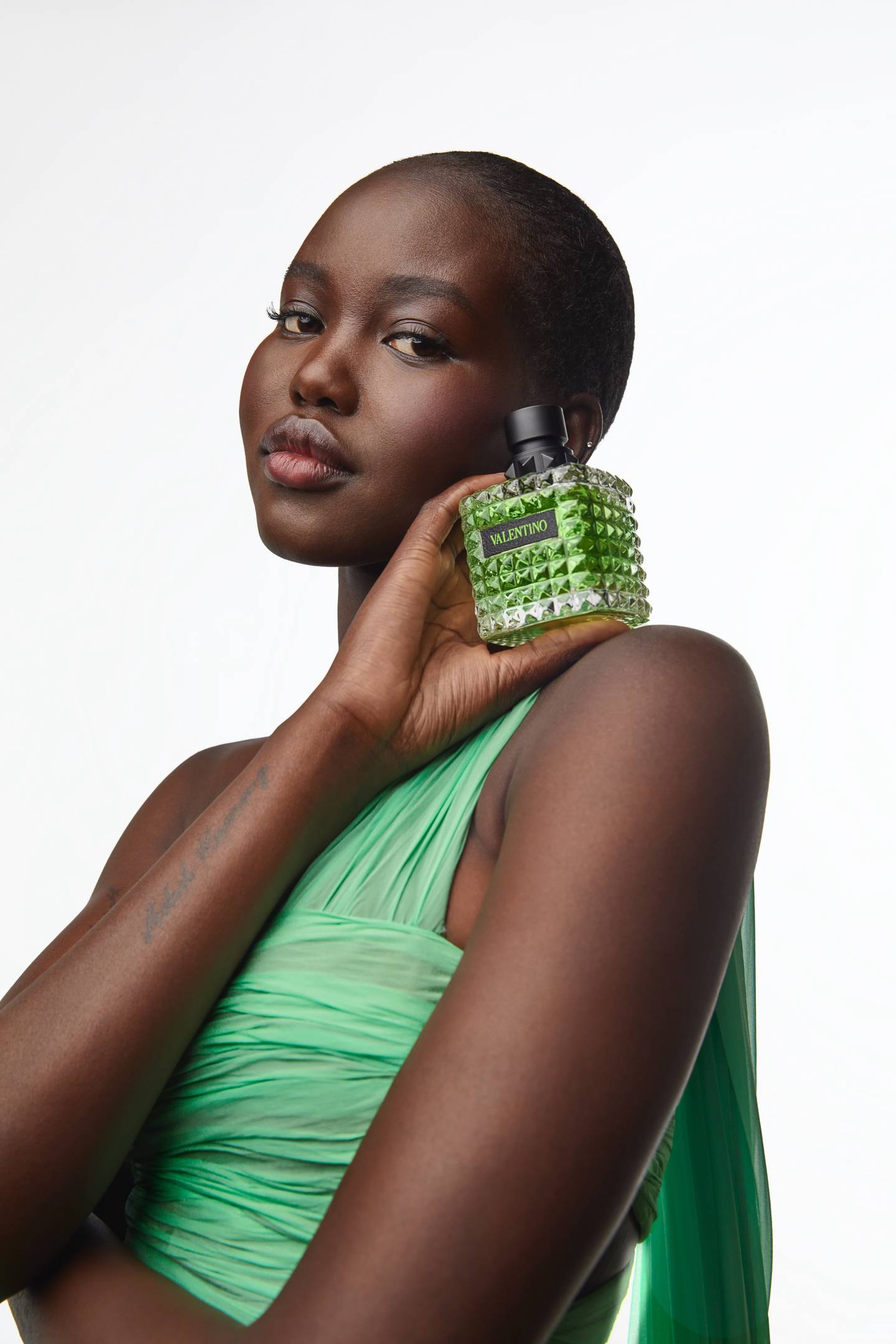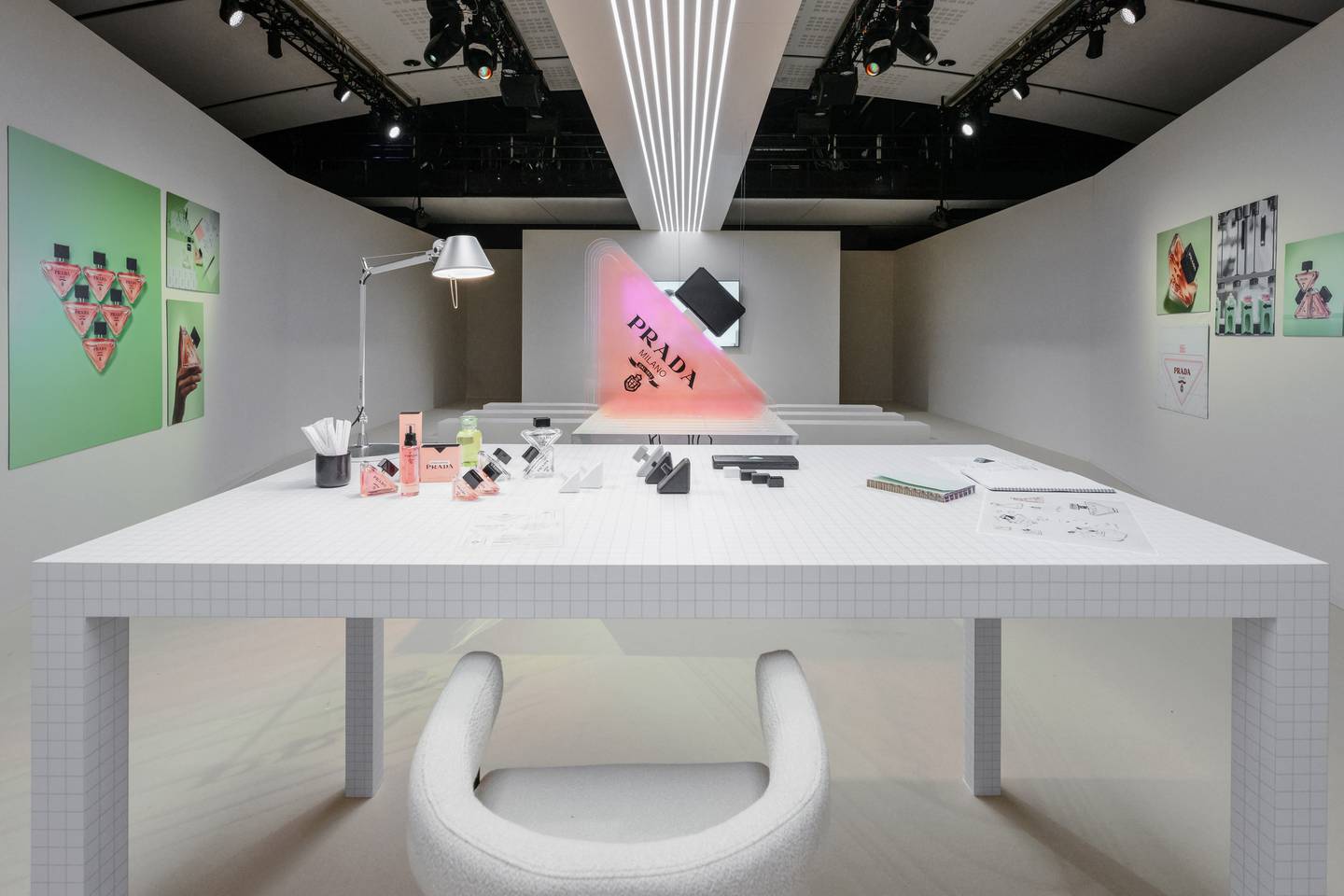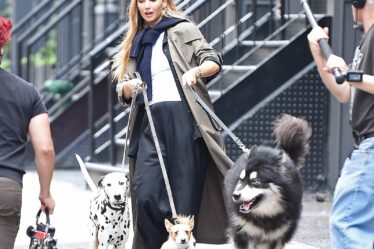
PARIS – L’Oréal’s luxury division has had an eventful week: last Thursday, the group announced annual revenues that showed the Luxe unit had surpassed Estée Lauder Companies, making it the world’s biggest player in prestige beauty. Friday, the brand announced its latest licence: the rights to sell perfume and beauty products for Prada’s fast-growing sister brand Miu Miu.
On Tuesday, the group welcomed journalists and retail partners to Paris for an immersive event showcasing its history and latest innovations in its fragrance lines including Armani, Yves Saint Laurent, Valentino and Prada.
The group offered samples of signature ingredients including rose extracts for Lancôme — grown and distilled in Grasse — or an ultra-fresh, realistic tuberose note extracted using a method that eschews solvents or heat (the first ingredient to stem from an exclusive deal signed last year with French supplier Cosmo). Guests also got an exclusive preview of Valentino’s new high perfume line, which is set to be revealed to customers this spring.
Licensing has become a dirty word in some corners of the luxury industry. Gucci-owner Kering plans to bring beauty in-house for more of its brands while Spanish perfume-and-fashion giant Puig increasingly seeks to acquire brands outright.
The trend hasn’t stopped L’Oréal from nabbing major licence deals: Prior to Miu Miu, the last five years have seen the group sign agreements with Prada and Valentino, as well as acquiring buzzy Mugler (including its fashion arm) and renewing its blockbuster partnership with Armani through 2050.
“We’ve kept gaining market share for the past 13 years by building this very balanced portfolio of brands, which respond to all kinds of customer needs across geographies, ages, psychographies,” Cyril Chapuy, L’Oréal Luxe’s president, told BoF.
The acquisition strategy has boosted L’Oréal’s sales in recent years thanks to the rapid growth of new fragrance lines like Valentino’s Born in Roma or Prada’s Paradoxe. Meanwhile, YSL — which is locked into a “very long term deal” with L’Oréal — reinvigorated its fragrance business by growing its Libre scent fronted by singer Dua Lipa.
Sales in L’Oreal’s luxury division grew 4.5 percent on a like-for-like basis to €14.9 billion ($16 billion) last year. Shares fell 7 percent, however, as investors reacted to a worse-than-expected downturn in China. The luxury unit still surpassed rival Estée Lauder Companies, whose revenues have fallen for six consecutive quarters.
The Case of Prada
For the luxury fashion licences L’Oréal refers to as its “couture” segment, the group’s success rests on a “relationship of trust and close collaboration” with partners, Chapuy said. Nearly 35 years into the group’s partnership with Armani — which has grown into a multi-billion-per-year business based on its mix of signature fragrances like Acqua di Gio and Sí and the popularity of its full colour cosmetics range including nail polishes, lipstick and foundation — the group continues to meet with founder Giorgio himself on a monthly basis.
For Prada, owner-designer Miuccia and her husband and business partner Patrizio Bertelli were personally involved in deciding how the brand’s nuanced mix of heritage and avant-garde codes would be translated to beauty.
“They felt that the triangle, the Prada green, the checkerboard you see in stores were timeless signatures that absolutely had to be present,” Chapuy said.

The unit’s first major perfume launch at L’Oréal, Prada Paradoxe in 2022, met the brief by crafting a triangle-shaped bottle, and is marketed by Emma Watson on a Prada green background.
Wresting control of Prada’s perfume business from former licensee Puig took longer than expected, delaying the relaunch under L’Oréal. But Chapuy still waited for new perfumes to hit the market before stepping into the realms of skincare and colour cosmetics, which launched in August 2023.
“Perfume is the category that really incarnates luxury, it has an indulgent, hedonistic quality as well as being linked to the world of dreams,” Chapuy said.
With Miu Miu, the group is likely to follow a similar process: create a flagship fragrance to anchor the brand’s beauty codes before branching out. L’Oréal and Prada Group will need to align in their efforts to differentiate the message and target customer for Prada and Miu Miu, whose overlap has at times been problematic.
“We see Miu Miu as being more experimental, more playful and more free — in addition to appealing to a somewhat younger client,” Chapuy said. “Prada is more about sophistication, the avant-garde.”
In addition to inking new licences, L’Oréal Luxe has sought to control more of the value chain and reduce its reliance on wholesalers in recent years by opening dozens of freestanding boutiques for its couture brands, notably in China, as well as ramping up e-commerce.
The group accelerated its retail push significantly last year with the acquisition of Aesop, the nature-inspired premium skincare and perfume brand which operates more than 400 boutiques.
China Questions
As the dust settles on the Miu Miu deal and news of L’Oréal Luxe’s triumph in its rivalry with ELC, questions linger regarding the group’s downturn in North Asia, which had previously powered growth for the division. Group-wide sales contracted 6 percent in the region in the fourth-quarter, amid weak demand in Mainland China and slower sell-out in travel retail hubs like Hainan.
“Following changes in the enforcement of daigou [duty-free import] regulations last May, the group will face quite tough comparatives in this part of the business in the first half. Yet it is also clear that the underlying demand situation is more difficult,” HSBC analysts wrote in a note to clients. “Outside China, the beauty market remains dynamic and we expect this will remain the case in 2024.”
Chapuy emphasised the strength of the group’s globe-spanning portfolio. “We’ve built a balanced, global profile — because you are never really safe from a regional crisis,” he said.


